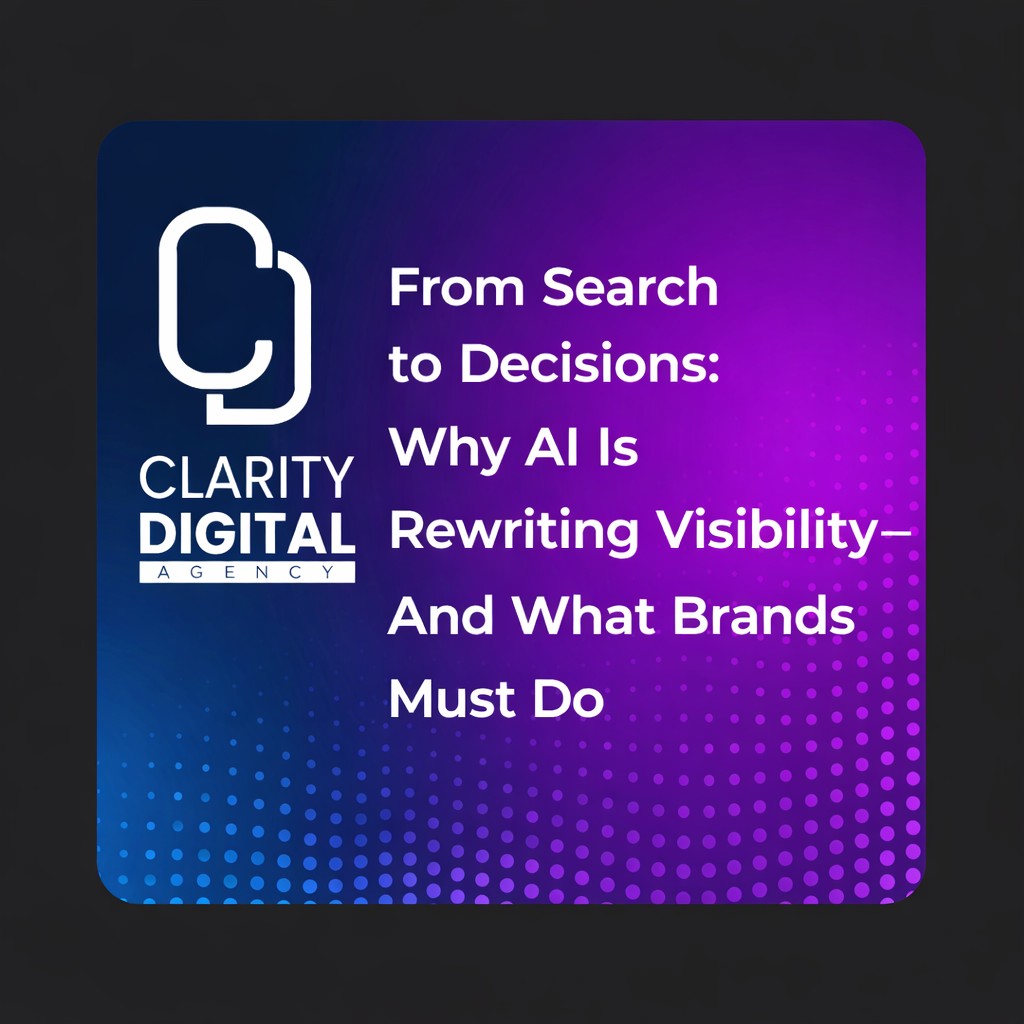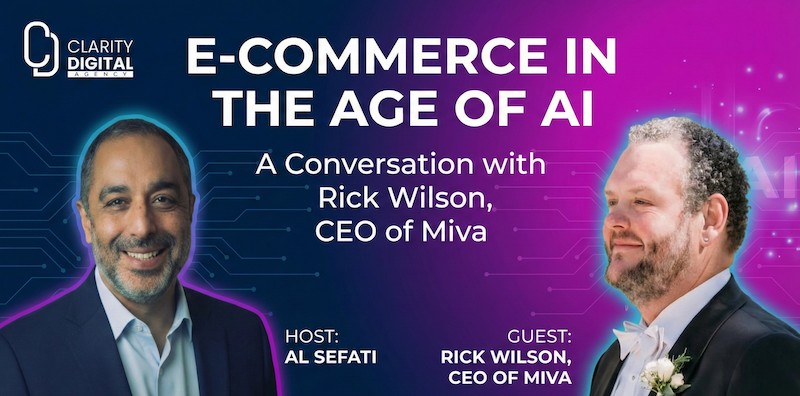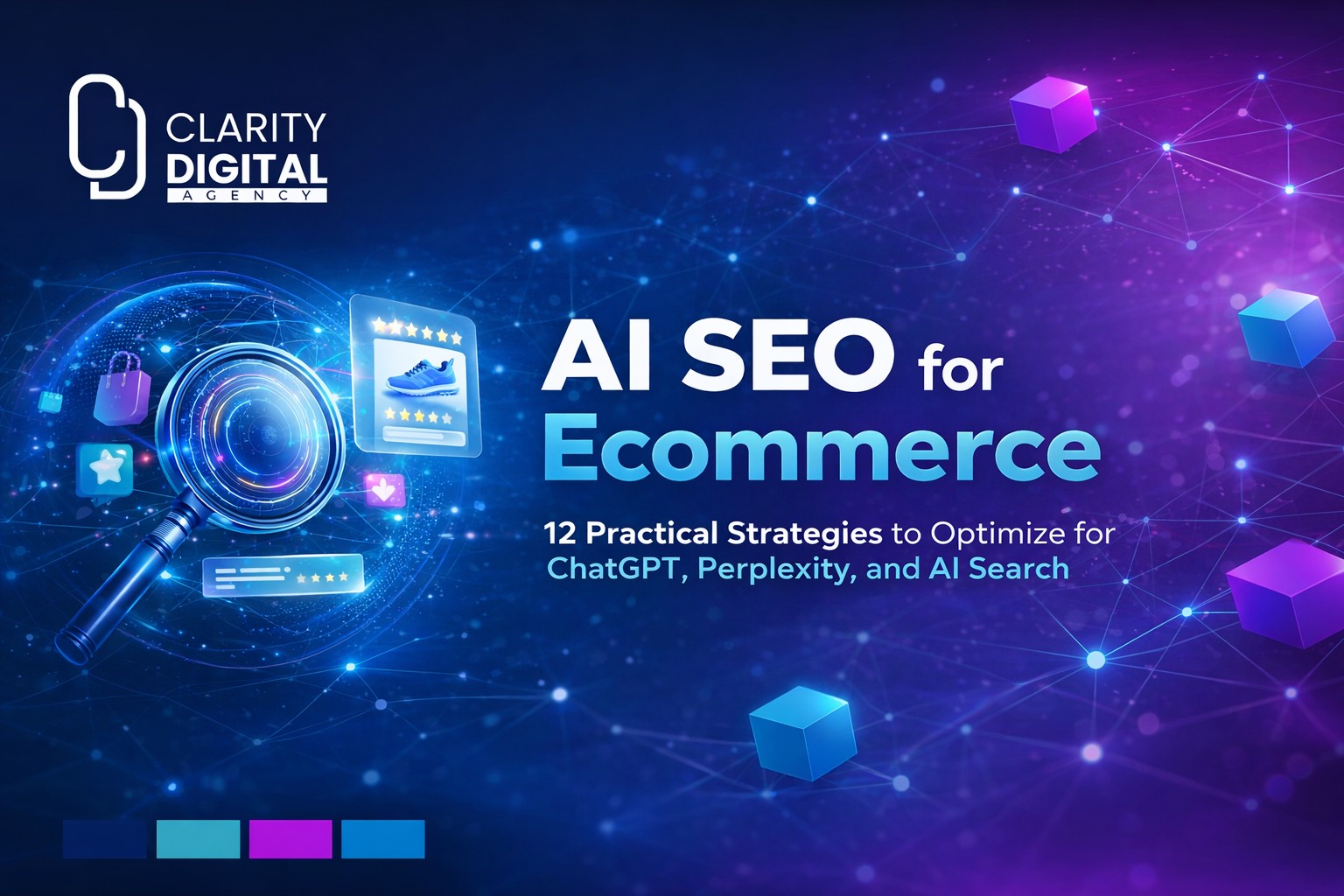Video Summary
This episode was packed with valuable insights on the future of SEO, branding, and AI-driven search. As search continues to evolve, SEOs must adapt, think beyond Google, and focus on brand authority across multiple platforms.
Want to stay ahead in digital marketing? Subscribe to the Clarity Digital Podcast for more expert insights from industry leaders.
The Future of SEO: AI, Branding, and Evolving Strategies A Conversation with Ash Nallawalla on the Clarity Digital Podcast
Search engine optimization (SEO) is evolving faster than ever, with AI reshaping how search works and brands struggling to stay ahead. In a recent episode of the Clarity Digital Podcast, host Al Sefati sat down with Ash Nallawalla, a veteran SEO expert with over two decades of experience, to discuss the changing SEO landscape, the impact of AI, and how branding will play a more significant role in search visibility.
Ash Nallawalla’s Journey: From Accounting to SEO
Ash Nallawalla’s career has taken him through several industries before landing in SEO. He started as an accountant in New Zealand before moving to Australia, where he joined the Air Force. His passion for technology led him to marketing roles at companies like Unisys, Hayes Modems, and Macromedia (now part of Adobe), where he gained hands-on experience in early web development, marketing, and SEO.
His transition into SEO began in the early 2000s after being laid off during the dot-com crash. He started consulting on CRM systems, but his website ranked so well for “CRM consultant” that businesses started reaching out for SEO help instead. This launched his career as an SEO consultant, eventually leading to roles at large enterprises and now as an independent consultant and author.
How SEO Has Changed – And How It Hasn’t
SEO has gone through major shifts, but some fundamentals remain the same. According to Ash, one of the biggest changes has been the shift from keyword-based SEO to entity-based SEO.
- Old SEO: Focused on keywords and backlinks as the primary ranking factors.
- Modern SEO: Focuses on brand visibility, content authority, and AI-driven search algorithms.
Ash highlighted that traditional SEO tactics like link-building and keyword stuffing don’t work the way they used to. Google’s algorithm updates and AI-powered search experiences now prioritize high-quality, authoritative content. SEOs need to think beyond checklists and technical tweaks—they need to build trust, expertise, and brand authority across platforms.
The Growing Role of AI in SEO
A major theme of the conversation was AI’s impact on SEO. With Google’s AI Overviews, ChatGPT, and Microsoft Copilot, search behavior is changing rapidly.
Key insights from Ash on AI and search:
- AI-generated content is reshaping SEO – Businesses are automating content production, but quality and accuracy remain challenges.
- Search behavior is shifting – Users are asking AI tools for answers instead of searching on Google. Some SEOs even admit they search less on Google and rely more on AI chatbots.
- Google’s market share is under pressure – More people are using Bing and AI-powered search assistants instead of traditional search engines.
Ash shared a real-world example: One of his former employers wasn’t appearing in Bing AI’s search recommendations because their website blocked AI crawlers. Once they lifted the block, their brand started appearing in LLM-generated results.
Why SEO Experts Need to Think Like Marketers
A key takeaway from the discussion was that SEOs can no longer rely on technical optimizations alone—they need to think like marketers.
- Branding is more important than ever – AI-driven search and LLMs (Large Language Models) pull data from multiple sources. If a brand isn’t well-represented across websites, social media, and content platforms, it risks being ignored by AI search engines.
- SEO professionals need to influence content strategy – Many SEOs come from technical backgrounds and struggle with brand messaging and content creation. To be successful, SEOs must collaborate with brand teams, content marketers, and PR teams.
- Optimizing for AI-driven search requires a multi-platform approach – SEOs should ensure brand visibility across Google, Bing, YouTube, TikTok, LinkedIn, and third-party publications to maximize searchability.
AI and the Future of Search Behavior
Ash and Al also discussed how user behavior is shifting—especially among younger generations. Gen Z and Millennials are turning to YouTube, TikTok, and AI chatbots for answers instead of Google.
This means SEOs need to adapt their strategies to optimize for different platforms, including video search and AI-driven recommendations.
- YouTube SEO is more important than ever – Brands should optimize their titles, descriptions, captions, and transcripts to increase visibility.
- TikTok is driving purchase behavior – Unlike traditional search, TikTok’s algorithm quickly pushes trending products and content to targeted audiences.
- AI-generated search summaries impact organic traffic – Websites that don’t structure content properly risk losing traffic to AI-generated answers.
Are Current Etnerprise SEO Tools Still Relevant?
With AI-driven search on the rise, the conversation turned to the relevance of traditional SEO tools like Moz, SEMrush, BrightEdge, and Conductor.
Key points from Ash:
- SEO tools are still useful, but they aren’t perfect. Most rely on proxy data, meaning their traffic estimates are not always accurate.
- Google is limiting data access to third-party tools. As Google tightens privacy controls and enforces JavaScript, many SEO tools may lose access to valuable search data.
- Manual SEO analysis is still critical. While tools can provide insights, Ash emphasized that SEOs should rely on their own analysis and not just tool-generated reports.
Al shared his own experience where a past CMO challenged him on spending thousands on an SEO tool. Instead, they invested that budget into content creation, which delivered better long-term results.
Should SEO Experts Invest in AI Content?
One of the most debated topics in SEO today is AI-generated content. Ash and Al discussed whether businesses should rely on AI for content production or focus on human-written content.
Ash’s perspective on AI content:
- AI is great for brainstorming and drafting content, but human editing is still essential.
- AI-generated content can introduce biases and inaccuracies, so SEOs must fact-check outputs.
- Search engines can detect AI content, and brands that rely solely on AI risk losing authenticity and credibility.
While AI can speed up content production, brands still need a human touch to refine messaging, add personality, and ensure accuracy.
Final Thoughts: The Future of SEO in a Post AI World
The episode wrapped up with a look ahead at where SEO is headed in 2025 and beyond.
Key predictions:
- SEO will be more integrated with branding and PR. Companies will need to invest in brand authority and visibility across multiple platforms.
- AI-driven search will continue to evolve. Businesses that ignore AI optimization risk losing visibility in search results.
- SEOs need to become better storytellers. Content that connects with audiences and resonates with AI-driven search engines will win.
Where to Find Ash Nallawalla
For those interested in learning more from Ash Nallawalla, you can find him at:
- Website: ash.nallawalla.com
- LinkedIn: Ash Nallawalla
- Fractional SEO Consulting: CRM911.com
Ash is also working on several books focused on SEO for business leaders





